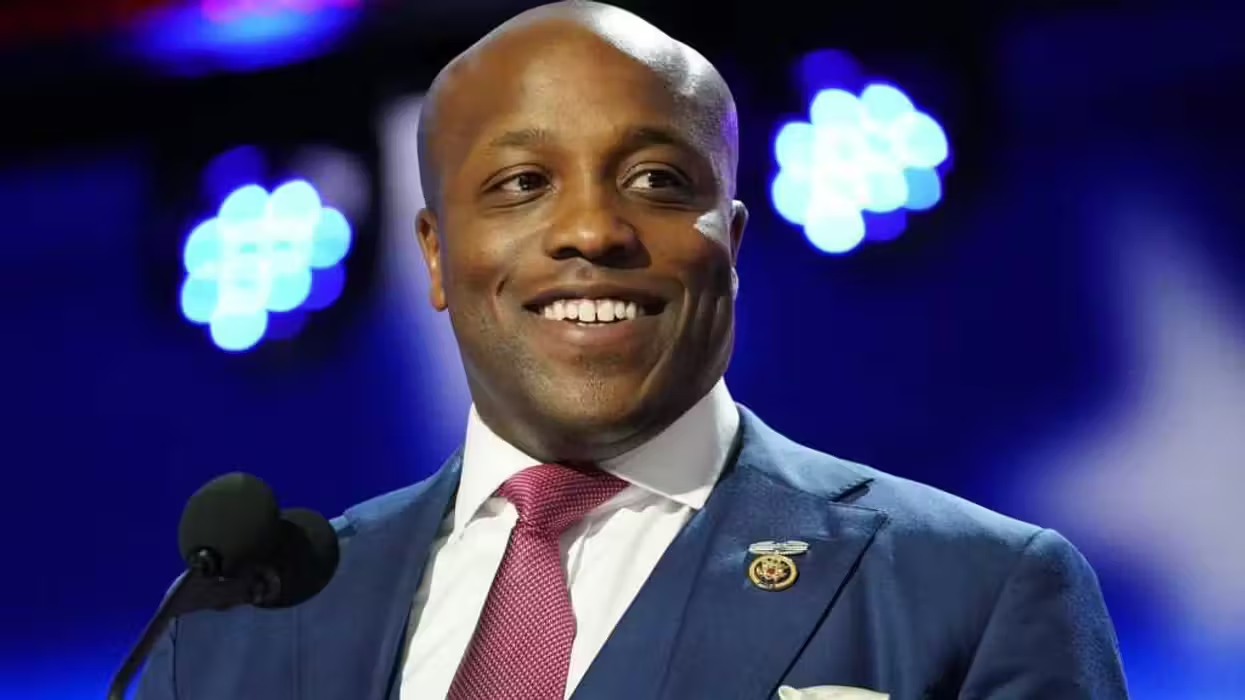© 2025 Blaze Media LLC. All rights reserved.
Federal Appeals Court Rules: Individual Mandate is Unconstitutional
August 12, 2011
"the individual mandate contained in the Act exceeds Congress's enumerated commerce power"
 ATLANTA (The Blaze/AP) -- A federal appeals court panel on Friday struck down the requirement in President Barack Obama's health care overhaul package that virtually all Americans must carry health insurance or face penalties.
ATLANTA (The Blaze/AP) -- A federal appeals court panel on Friday struck down the requirement in President Barack Obama's health care overhaul package that virtually all Americans must carry health insurance or face penalties.
(More: Read about the Ohio Supreme Court's ruling on a liberal Obamacare lawsuit)
The divided three-judge panel of the 11th Circuit Court of Appeals struck down the so-called individual mandate, siding with 26 states that had sued to block the law. But the panel didn't go as far as a lower court that had invalidated the entire overhaul as unconstitutional.
The states and other critics argued the law violates people's rights, while the Justice Department countered that the legislative branch was exercising a "quintessential" power.
The decision, penned by Chief Judge Joel Dubina and Circuit Judge Frank Hull (a female), found that "the individual mandate contained in the Act exceeds Congress's enumerated commerce power."
"What Congress cannot do under the Commerce Clause is mandate that individuals enter into contracts with private insurance companies for the purchase of an expensive product from the time they are born until the time they die," the opinion said.
Circuit Judge Stanley Marcus disagreed in a dissent.
The 11th Circuit isn't the first appeals court to weigh in on the issue. The federal appeals court in Cincinnati upheld the government's new requirement that most Americans buy health insurance, and an appeals court in Richmond has heard similar legal constitutional challenges to the law.
But the Atlanta-based court is considered by many observers to be the most pivotal legal battleground yet because it reviewed a sweeping ruling by a Florida judge.
U.S. District Judge Roger Vinson's ruling not only struck down a requirement that nearly all Americans carry health insurance, but he also threw out other provisions ranging from Medicare discounts for some seniors to a change that allows adult children up to age 26 to remain on their parents' coverage.
The states urged the 11th Circuit to uphold Vinson's ruling, saying in a court filing that letting the law stand would set a troubling precedent that "would imperil individual liberty, render Congress's other enumerated powers superfluous, and allow Congress to usurp the general police power reserved to the states."
The Justice Department countered that Congress had the power to require most people to buy health insurance or face tax penalties because Congress has the authority to regulate interstate business. It said the legislative branch was exercising its "quintessential" rights when it adopted the new law.
During oral arguments in June, the three-judge panel repeatedly raised questions about the overhaul and expressed unease with the insurance requirement. Each of the three worried aloud if upholding the landmark law could open the door to Congress adopting other sweeping economic mandates.
The arguments unfolded in what's considered one of the nation's most conservative appeals courts. But the randomly selected panel represents different judicial perspectives. None of the three is considered either a stalwart conservative or an unfaltering liberal.
Dubina, an appointee of President George H.W. Bush, is not considered to be as reflexively conservative as some of his colleagues. But he's been under particular scrutiny because of his daughter's outspoken opposition to the health care overhaul. U.S. Rep. Martha Dubina Roby, a Montgomery, Ala., Republican elected in November, voted to repeal the health care law.
Marcus and Hull were both tapped by President Bill Clinton to join the court. But Marcus was also previously appointed by Republican President Ronald Reagan to serve on the Florida bench after several years as Miami's lead federal prosecutor. And Hull, a former county judge in Atlanta, is known for subjecting both sides of the counsel table to challenging questions.
According to New York Magazine, Hull "becomes the first Democratically appointed judge to rule against health-care reform since challenges to the legislation began."
This is a breaking story. Updates will be added.
Want to leave a tip?
We answer to you. Help keep our content free of advertisers and big tech censorship by leaving a tip today.
Want to join the conversation?
Already a subscriber?
Jonathon M. Seidl is a former managing editor of Blaze News and a best-selling author and speaker. His next book, “Confessions of a Christian Alcoholic,” will be released on October 7, 2025.
Jonathon M. Seidl
Jonathon M. Seidl is a former managing editor of Blaze News and a best-selling author and speaker. His next book, “Confessions of a Christian Alcoholic,” will be released on October 7, 2025.
more stories
Sign up for the Blaze newsletter
By signing up, you agree to our Privacy Policy and Terms of Use, and agree to receive content that may sometimes include advertisements. You may opt out at any time.
Related Content
© 2025 Blaze Media LLC. All rights reserved.
Get the stories that matter most delivered directly to your inbox.
By signing up, you agree to our Privacy Policy and Terms of Use, and agree to receive content that may sometimes include advertisements. You may opt out at any time.






